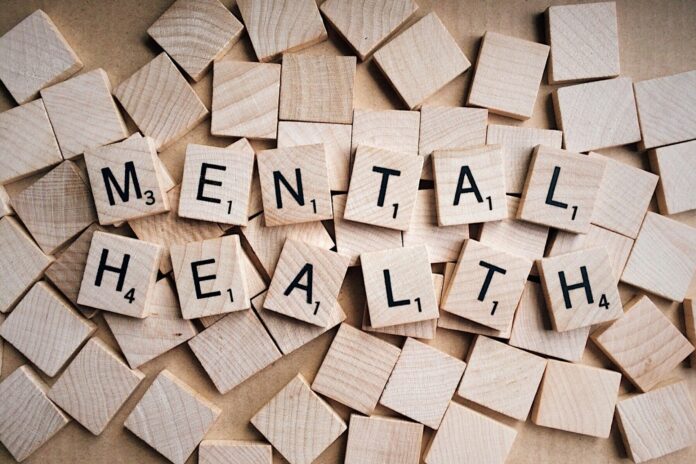
Children and adults feeling the mental health effects of life in a pandemic
Amid a pandemic that isolates us and has not been friendly to mental health, the Hanna Institute recently announced that it was awarded a $275,000 grant that will allow the institute to provide a series of free Adverse Childhood Experiences (ACEs) trainings and seminars on trauma-informed practices, screening and mental health for Medi-Cal providers starting Jan. 30 and continuing through the month of June.
The grant funds will also be used to help teach Medi-Cal providers about the importance of screening for ACEs, according to the Hanna Institute, a Sonoma County-based organization that aims to advance nonviolent communication, social justice and trauma recovery by providing trauma-informed care training throughout the county and in Northern California.
“A number of agencies in Sonoma County, including the Hanna Institute, were recipients of the very first round of grant funding from our California Surgeon General’s Office. (The state surgeon general) Dr. Nadine Burke Harris has been a champion of understanding how early childhood adversities and trauma have long-term implications for adult health,” said Erin Hawkins, the co-director of the Hanna Institute. “This grant and the inaugural round of funding — what they are referring to as the ACEs Aware Initiative — was released as a way to provide training to Medi-Cal providers and other agencies that work or have a point of contact with children and families.”
This could mean schools, social service providers, government agencies, nonprofits and more.
“It wanted to provide them training to increase their awareness around ACEs and trauma and toxic stress and provide them with the skills and capacity to (support) best practices to support the populations that come in,” Hawkins said.
Trauma informed practices can help organizations identify approaches to properly care for the psychological wounds of the folks they may serve, whether it is patients or students in a school setting.
“For example we know that on average 25% of kids in the United States in every classroom across the country walk in having experienced four or more serious types of early adversity, or have experienced significant trauma. That doesn’t mean that they don’t have resiliency, but it is important to help see them through (it) and they would continue to be served on their path to healing. The question we should be asking is not, ‘What is wrong with you,’ it’s ‘What happened to you,’” Hawkins said. “We want to help folks identify some of the factors and some of the stressors that can create and activate trauma, and we want them to think about how personal experiences and culture inform how we can help them (kids) regulate when they are feeling stressed out and move through that stress.”
ACEs can be caused by neglect, abuse, and/or household dysfunction occurring before age 18.
“There are three categories of ACEs, one is abuse — and that includes physical, sexual and emotional abuse — the second is neglect and that can come in many forms and the third is significant household dysfunction,” explained Dr. Deirdre Bernard-Pearl who is leading the ACEs screening and response practices work at Santa Rosa Community Health.
Significant household dysfunction can include anything from parental separation, to having an incarcerated parent, or a mentally ill parent. As Bernard-Pearl explained it, it’s something that disrupts the “nurturing family system in a way that can be harmful to a child.”
“Because these experiences happen while children’s brains and bodies are still developing, the resultant traumatic stress has long-lasting consequences. ACEs are closely linked to at least nine of the 10 leading causes of death in the United States, and associated conditions include asthma, diabetes, depression, heart disease and difficulties learning,” according to a Hanna Institute press release.
The Hanna training sessions that will be offered to Medi-Cal providers will lay the groundwork for taking a deep dive into trauma informed practices and ACEs.
The sessions will also take a look at the science of how trauma shows up in individuals, elements of race based trauma and inequity, and will provide skills on how to do self-care.
The Santa Rosa Community Health Center also received an ACEs Aware Initiative grant, along with the Redwood Community Health Coalition, and Sebastopol-based Dovetail Learning.
The grant for the Hanna Institute will also allow them to do communications work and provide information regarding ACEs across four counties, Sonoma, Marin, Yolo and Napa County.
Organizations like the Hanna Institute aim to educate people about the importance of ACE screenings and trauma-informed practices because if it’s not mitigated, long-term trauma caused by ACEs can later lead to health issues as an adult, although there are ways adults can be treated for trauma.
“There are many ways to help people with trauma … On a personal level it’s also clear that mindfulness-based practices (Can) help individuals gain greater perspective on their situation and help individuals shift behavior out of negative and self-harming behaviors. Mindfulness practices can help people learn how to shift their behavior and that can be very helpful as well,” Bernard-Pearl said.
When asked if things like a coronavirus pandemic can play into the effects of ACEs Bernard-Pearl said “absolutely.”
“We have ongoing community and societal traumas and those absolutely impact health. We make a distinction between what’s been studied and a tremendous amount of research and (what’s) categorized as ACEs and other kinds of trauma. There’s a large body of research documenting the impact of what was studied back in the 1990s as the two types of ACEs and now when we do ACEs screening we also ask about ongoing traumas like natural disasters, discrimination, racism, food insecurity, housing insecurity, living in poverty etc. All of these forms of trauma have a great impact as well, we just put them in a different category apart from what’s been studied as ACEs,” Bernard-Pearl explained.
Has COVID led to an uptick in adverse mental health in Sonoma County?
“One of the consequences of being a system that is overwhelmed is we are not in the position to carefully collect data and review it in a way we might like to, but our impression, and some of the numbers we see, is that it is a mixed bag,” said Bill Carter, a licensed clinical social worker who’s the director of the behavioral health division for the Sonoma County Department of Health Services. “It’s things like suicide rates have not gone up, and that’s good and to some degree consistent with our experience, and on the other hand there are people coming to us for services — large numbers of children in particular — who are contacting us to access services as Medi-Cal beneficiaries.”
Early on in the pandemic the county created a mental health warm line for folks who needed supportive counseling or mental health resources.
“We ran a warm line, and in addition Sonoma County operates a crisis line 24/7 and that line is designed for folks who have a very urgent need for services and support. We opened in April a warm line designed to offer supportive counseling on the phone,” Carter said.
Carter said they saw a spike in the warm line’s use early in the COVID lockdown.
“Over time it decreased. There would be spikes in certain periods of time. It might have been in relationship with the holidays or new orders or news stories, but overall the use declined over time,” he said.
Carter said the county recently took advantage of the state’s warm line in order to transition the county’s service to the state warm line services.
Malia Connors, a colleague of Carter’s and a licensed marriage and family therapist, said she has seen stress in children relating to the pandemic and distance learning.
“I’m a youth clinician working with youth and families and we have definitely seen an increase in stress mainly tied to the school piece and that children and teens are expected to learn through distance learning. Attendance and participation has definitely decreased and it is making lives at home quite stressful for parents too,” Connors said.
When asked how might living through multiple wildfires and a pandemic affect children Connors cited acting out behaviors.
“With the kiddos that I work with I definitely see more acting out behaviors, instances of opposition and defiance particularly among the boys it seems. We’re getting in a lot of referrals for girls who are more internalizing their behaviors,” she said. “What we aim to do is to provide awareness, a lot of psychoeducation about the more common effects, symptoms and behaviors associated with living through these kinds of traumas. When the fires were taking place and we were deployed to the shelters we were doing some of that work just providing education to normalize and then validate that those experiences are understood.”
Carter expressed concern about what the cumulative mental health impact will be on folks in the area who have endured four years of disasters.
“What has happened over the last four years in this area is a sequence of disasters that’s highly unusual. We’ve had fires, floods, power outages and now COVID and we worry about the cumulative effect of that and we know in the area that cumulative trauma has resulted in poorer outcomes and can have negative impact,” he said.
“The nature of the COVID disaster in particular is both unusual and it hits directly the areas of our life that we as adults and children use to be healthy and stable and it’s interfering with our connections with other people, interfering with our connections to institutions such as church and school and so I would say we are apprehensive about what the longer term outcome of the disaster is going to be for those reasons,” he continued.
But how might the COVID disaster affect children with ACEs versus children without ACEs?
“As Bill said, the more ACEs the poorer outcomes, and I think that’s why it is so important to have early prevention and treatment as soon as possible,” Connors said.
Carter highlighted the fact that it is important to normalize the fact that trauma can impact children and people, but at the same time children are naturally resilient.
“Kids have natural coping mechanisms that they’ve developed with their families, parents or support network to respond to these as well. We want to normalize it (trauma), make it OK to talk about and recognize it and reach out for help, and realize that we get through these things,” Carter said.








